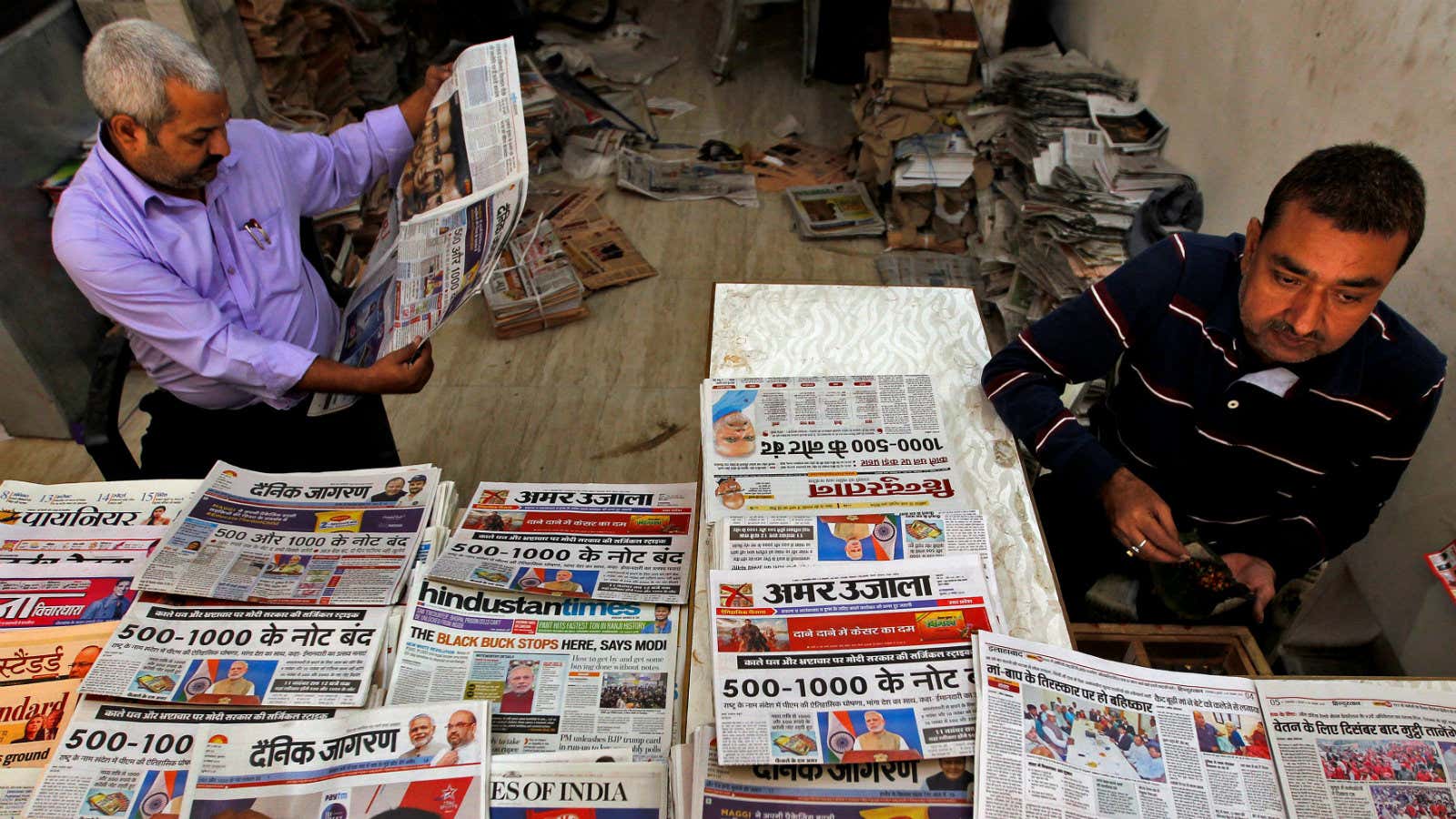Is India’s banking sector imploding?
In the last 24 hours alone, the country learnt that the industry has written off bad loans worth nearly four times the latest annual budget of the Nepal government. What’s worse, the number may as much as double if a forecast from a global investment bank comes true. Adding to the gravity of the situation, India’s second-largest private lender, ICICI Bank, and its CEO Chanda Kochhar, face a potential class action lawsuit in the US over the recent allegations of corruption and nepotism.
Massive write-offs
The Narendra Modi government revealed in parliament that Rs2.41 lakh crore ($37 billion) were written off by India’s public sector banks (PSBs) in the last four financial years. “Banks write off bad loans or non-performing assets (NPAs) at regular intervals as it helps them clear their balance sheets and achieve tax-efficiency,” minister of state for finance Shiv Pratap Shukla said in a written reply to the Rajya Sabha. Shukla, however, did not reveal the names of the defaulters, citing confidentiality.
While the government has insisted that write-offs do not mean the banks will give up on the recovery of loans, an analysis has revealed that the total recoveries by banks in the last four years has been less than 10% of the write-offs.
Most write-offs come from the corporate sector which accounts for over 80% of the total PSB loans, according to the Reserve Bank of India (RBI). On the other hand, many government banks have stayed afloat only because of the government’s financial support, including the most recent $32 billion recapitalisation plan.
More “dud” loans
In any case, the $37 billion write-offs may not be all. Around $38 billion more of loans may soon turn bad, global investment bank Bank of America-Merrill Lynch (BofA-ML) has warned. “Of the $178 billion (around Rs11.7 lakh crore) of debt of the power sector, $53 billion (around Rs3.5 lakh crore) is already under stress. Of this, as much as $38 billion (around Rs 2.5 lakh crore) have the potential of being written-off as bad loans,” BofA-ML has said.
Over 90% of the stressed loans in the power sector have gone to the producers, many of whom have gone bankrupt due to crushing debt, rising costs, and falling revenues. On an average, BofA-ML expects 75% of these loans to be written off.
Legal threat
ICICI Bank, right now the heart of a raging nepotism controversy, runs the risk of facing a class action lawsuit in the US, according to American brokerage firm Jefferies. Such a suit allows a group of consumers or investors to sue an individual or a company for financial or other damages caused by negligence or mismanagement.
“Emerging risks (for the bank) could be a formalised corruption charge and more such instances coming up, and (the) bank facing a class action suit and a costly settlement,” Jefferies said. ICICI Bank’s stock has already lost 11% of its value since March 15 when the first reports of nepotism emerged.
It was alleged that the bank doled out loans to a firm owned by Videocon promoter Venugopal Dhoot who had links with Deepak Kochhar, the husband of the lender’s CEO. That loan soured and the borrower went bankrupt. The heat is now on Chanda Kochhar. While the bank’s board has defended her and denied favouritism, nepotism, or any quid pro quo, the Central Bureau of Investigation (CBI) is reportedly probing the case now.
